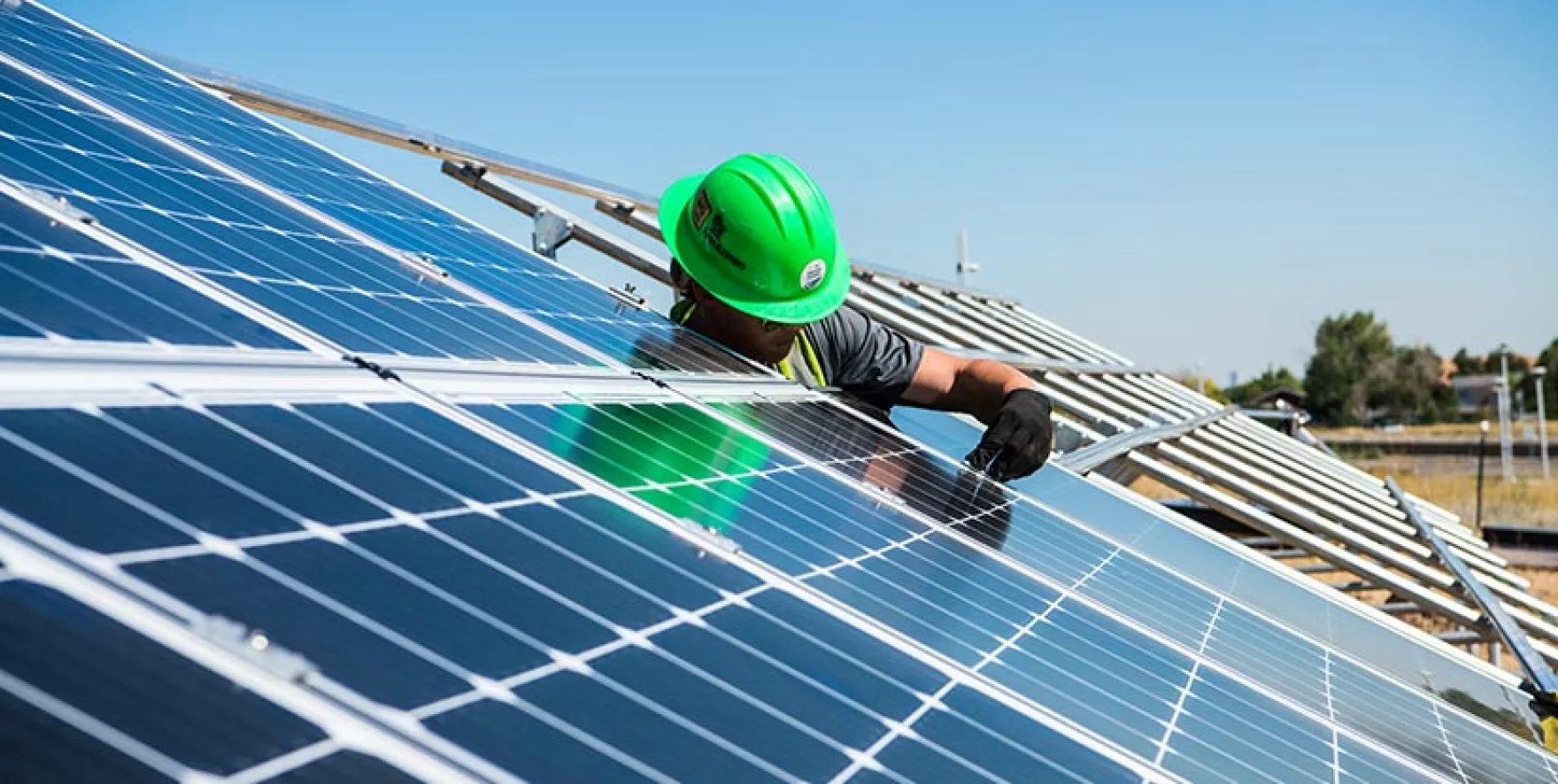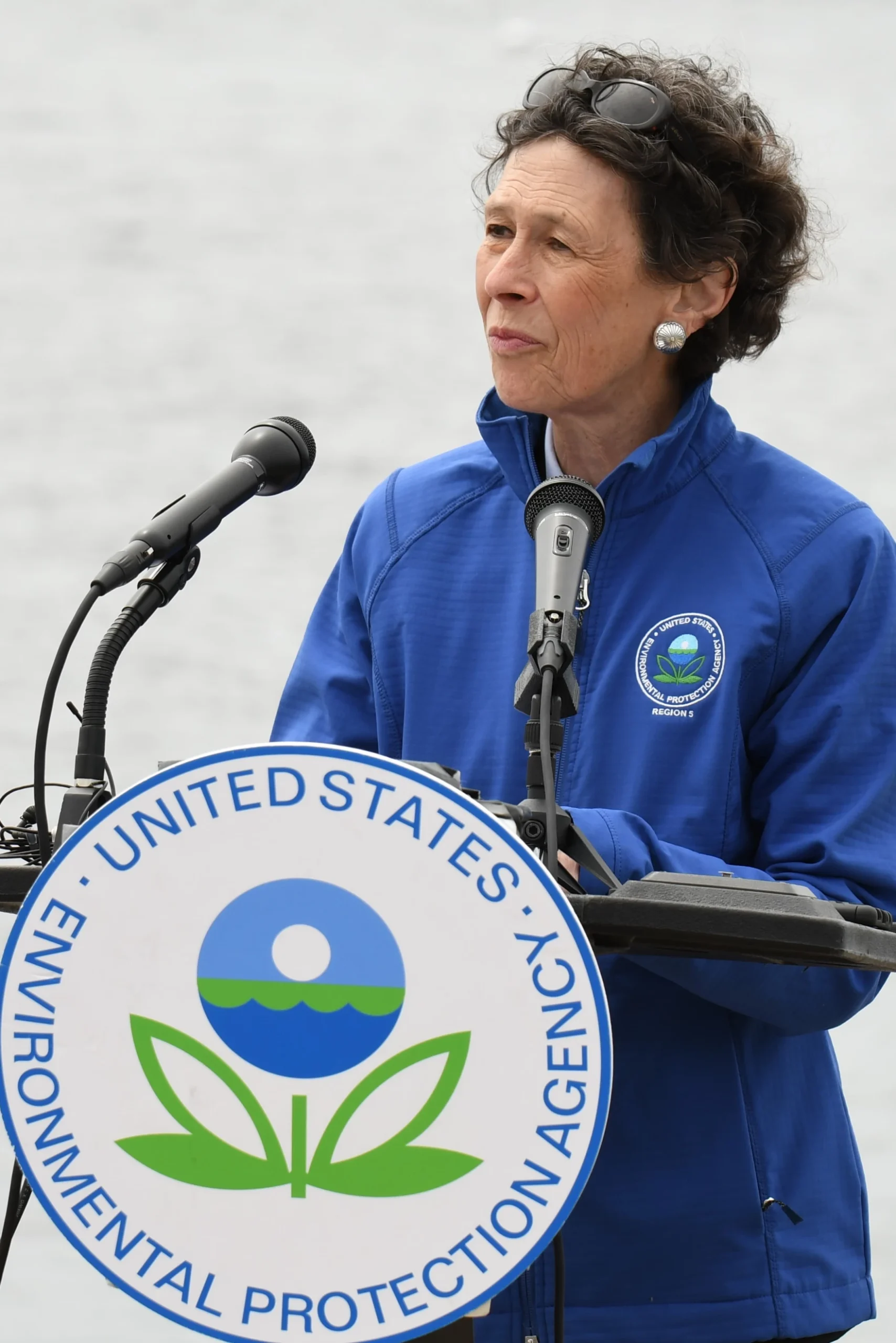
By Lester Graham, Michigan Public
The Great Lakes News Collaborative includes Bridge Michigan; Circle of Blue; Great Lakes Now at Detroit Public Television; Michigan Public, Michigan’s NPR News Leader; and who work together to bring audiences news and information about the impact of climate change, pollution, and aging infrastructure on the Great Lakes and drinking water. This independent journalism is supported by the Charles Stewart Mott Foundation. Find all the work HERE.
Four tribes in Michigan are getting federal grants totaling more than $38 million to reduce greenhouse gas emissions.
The U.S. Environmental Protection Agency’s Region 5 administrator Debra Shore said a tribe in the eastern part of Michigan’s Upper Peninsula is getting the largest of the grants.

Debra Shore is Administrator of USEPA Region 5, which includes Michigan. (Lester Graham/Michigan Public)
“The Bay Mills Indian Community is due to receive more than $17 million for installing a solar farm and battery storage,” Shore said.
The grant also includes funding for training workers.
“We always believe that we should train local and hire local. And so the development of that program through the Bay Mills Community College will be creating the technical expertise that we need here, not only within our own tribal nation, but also the eastern Upper Peninsula,” said Whitney Gravelle, President of the Executive Council of the Bay Mills tribe.
Gravelle added that the tribe is staunchly opposed to the Enbridge Line 5 dual pipelines sitting on the lake bed of the Straits of Mackinac which link Lakes Michigan and Huron. The Bay Mills tribal nation agreed it wanted to diversify its own energy supply and more toward a renewable energy plan.
“It is our estimate that the energy produced from the solar array will completely offset the entire energy consumption of the Bay Mills Indian Community, which will in fact make our tribal nation 100% renewable in our energy profile,” Gravelle said.
The Lac Vieux Desert Band of Lake Superior Chippewa in the western Upper Peninsula will receive $15 million for home energy efficiency. 145 units of HUD-regulated tribal low-income housing and two commercial buildings will be retrofitted with heat pumps, weatherization work, and rooftop solar, according to a release by the EPA.
The Nottawaseppi Huron Band of Potawatomi, southeast of Kalamazoo, will get $1.2 million to convert 23 commercial vehicles to electric and install charging stations. The tribe’s proposal also included upgrading lighting for its greenhouses, and planting wild grasses and native plants.
A coalition headed by the Pokagon Band of Potawatomi, near Dowagiac, will get $5 million for renewable energy projects such as heat pumps, solar panels, and EV charging stations.
Nationwide, the EPA announced $300 million in climate pollution reduction grants for tribes and U.S. territories. The grants are funded by the Inflation Reduction Act.
The Biden Administration said all of the proposed projects combined would reduce greenhouse gas pollution by more than 7 million metric tons of carbon dioxide by 2050 — equivalent to the carbon dioxide emitted from nearly 1.4 million homes’ electricity use for a year.
Catch more news at Great Lakes Now:
Cleaning up pollution and removing crumbling dams help to restore Michigan rivers
Toxic blooms on Lake Erie still a problem 10 years after Toledo issued a ‘do not drink’ order
Featured image: Solar arrays, battery storage, electric vehicles and charging stations are among some of the proposals from tribal nations being funded by the federal government. (Photo courtesy of National Renewable Energy Laboratory)




